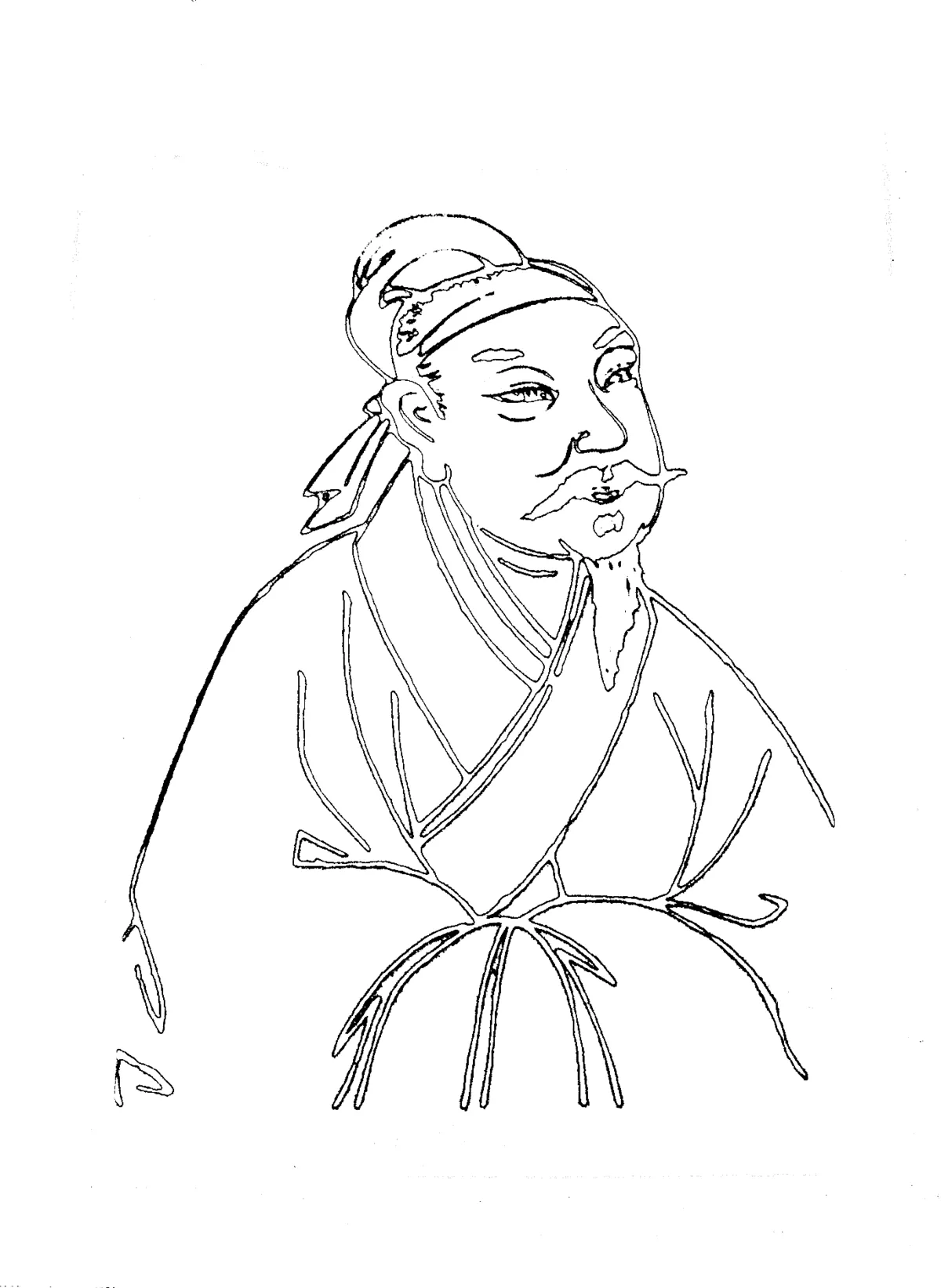 1.
1. Huang Tingjian was a Chinese calligrapher, painter, and poet of the Song dynasty.

 1.
1. Huang Tingjian was a Chinese calligrapher, painter, and poet of the Song dynasty.
Huang Tingjian is predominantly known as a calligrapher, and is admired for his painting and poetry.
Huang Tingjian was one of the Four Masters of the Song Dynasty, and was a younger friend of Su Shi and influenced by his and his friends' practice of literati painting, calligraphy, and poetry; regarded as the founder of the Jiangxi school of poetry.
Huang Tingjian was born into the prominent Huang clan and to a family of poets, which had established residence in Jiangnan, south of the Yangzi River, just across the river gorge from the main turmoils and troubles of the Five Dynasties period.
Huang Tingjian's mother, Lady Li, was an accomplished painter of bamboo and player of the guqin.
Huang Tingjian failed his jinshi in the Imperial examination, at his first attempt, in 1064, but was passed in 1067, when he was 22 years old.
Huang Tingjian passed his teaching credential exam in 1072, and spent the next 7 years teaching at the Damingfu Imperial Academy in Hebei.
In 1078, Huang Tingjian presented Su with a letter and two elaborate gushi-style poems, to which Su returned with two poems of his own, matching Huang Tingjian's rhyme-scheme.
Huang Tingjian's fame was secured when Su Shi heaped his praises upon him, and the two became close friends for life.
Huang Tingjian was exiled, first to Jizhou Subprefecture, then to Depingzhen, in Shandong.
Like, Su Shi, Huang Tingjian was known for good governance: light with taxes and empathetic with the common folk over whom they were placed in charge.
Obligatory retirement for a period of mourning in the case of the death of either parent was then the custom, and Huang Tingjian returned to the family cemetery in Fenning, Jiangnan, with the remains of his mother, his two wives that had died, and those of an aunt.
Zhezong favored the reformist party, and their remnant members returned with a vengeance: their opponents alive or dead were persecuted: Su Shi was demoted and exiled, Sima Guang and Lu Gongzhu's tombs were defaced, and Huang Tingjian was denounced by Cai Bian.
Huang Tingjian was convicted of sarcastically editing the official records of former Emperor Shenzong.
Huang Tingjian spent the ensuing decade in exile, in various locations in Sichuan.
Huang Tingjian found out he had been pardoned, later in the year of 1100.
Huang Tingjian was granted a sinecure position in Ezhou city, in southeastern Hubei, which meant that he received a salary or other remuneration; but, as he was not required to live or work there, this was not exile.
However, Huang Tingjian remained in Sichuan long enough to attend his son's marriage ceremony, to the daughter of a local official.
In 1102, Huang Tingjian visited Fenning, after extensive travels and several illnesses.
Huang Tingjian had been the recipient of a major promotion, but was now dismissed summarily, just 9 days after his appointment.
Huang Tingjian awaited further developments at Ezhou, hearing no news about how the emperor intended to deal with his case, until the end of 1103.
Not that he was not already there, in Ezhou; but, now, Huang Tingjian was faced with traveling through the depths of it, only to emerge into an even more remote and difficult territory.
Huang Tingjian faced a fate similar to Su Shi Dongpo, who never quite made it back from his final exile in the then remote and undeveloped island of Hainan.
In early 1104, Huang Tingjian packed up his family and headed south, towards his place of banishment, Yizhou.
That springtime, during the course of his journey, Huang Tingjian met the Chan monk Zhongren.
Zhongren shared a scroll of poems by Su Shi, Su Shi's brother Su Che, the monk Shenliao, and Qin Guan : and, both Su Shi and Qin Guan had died as a result of their exiles in the south, the journey which Huang Tingjian was now upon.
Emperor Huizong had ordered him there, and so, leaving his family in the mountains of Yongzhou, in order to "spare them from the intense heat", Huang Tingjian traveled on to his destination without them.
Huang Tingjian's funeral was arranged by a stranger, who had traveled to Yizhou, hoping to make his acquaintance.
Huang Tingjian had 3 wives during his life, and one son, to the third.
Huang Tingjian had a strong lifelong interest in Buddhism and Daoism.
The year after his second wife died, Huang Tingjian retreated to the Shan'gu Daoist monastery in Anhui, and took the religious name Shan'gu Daoren.
Huang Tingjian is noted for his prodigious talent in terms of his vast knowledge of Classical Chinese poetry and literature.
Huang Tingjian is famous both for the calligraphy and the poetry of his work "Wind in the Pines Hall", which survives in the Palace Museum, Taipei.
Huang Tingjian is regarded as a particularly fine and creative calligrapher of the Song Dynasty.
Huang Tingjian is considered to be the founder of the Jiangxi school of poetry.